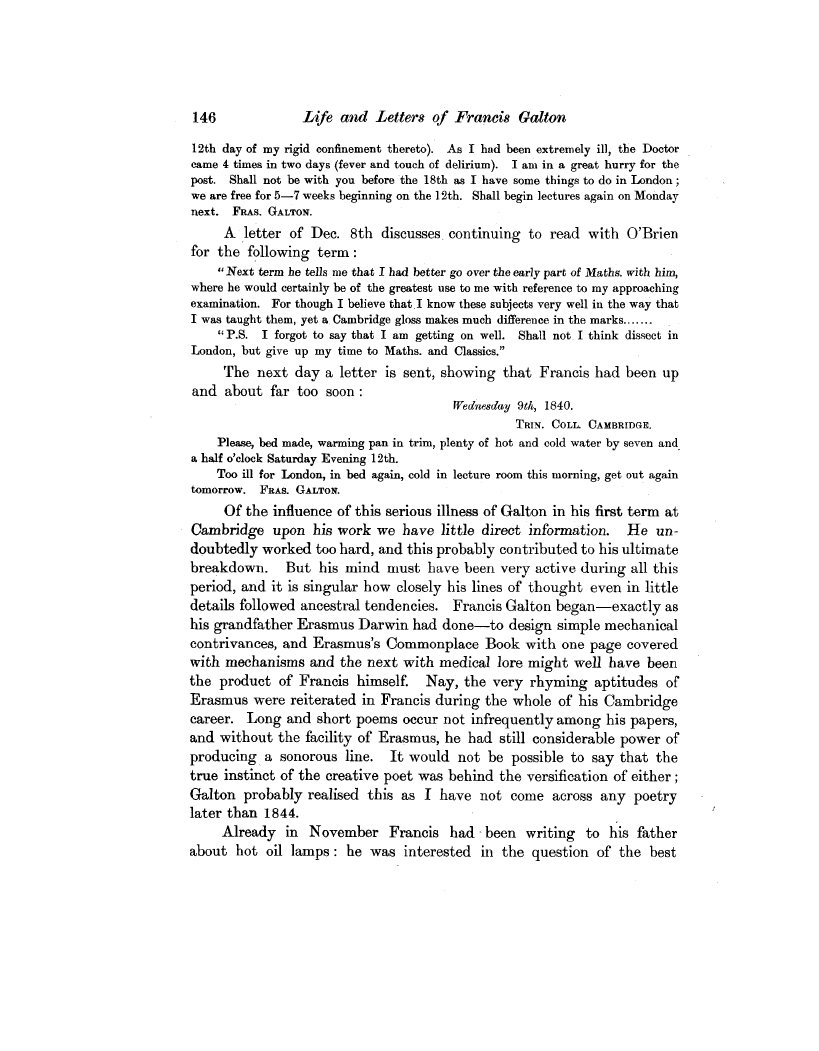| ||||||

OCR Rendition - approximate
146 Life and Letters of Francis Galton 12th day of my rigid confinement thereto). As I had been extremely ill, the Doctor came 4 times in two days (fever and touch of delirium). I am in a great hurry for the post. Shall not be with you before the 18th as I have some things to do in London ; we are free for 5-7 weeks beginning on the 12th. Shall begin lectures again on Monday next. FRAs. GALTON. A letter of Dec. 8th discusses, continuing to read with O'Brien for the following term "Next term he tells me that I had better go over the early part of Maths. with him, where he would certainly be of the greatest use to me with reference to my approaching examination. For though I believe that.1 know these subjects very well in the way that I was taught them, yet a Cambridge gloss makes much difference in the marks "P.S. I forgot to say that I am getting on well. Shall not I think dissect in London, but give up my time to Maths. and Classics." The next day a letter is sent, showing that Francis had been up and about far too soon Wednesday 9th, 1840. TRIN. COLL. CAMBRIDGE. Please, bed made, warming pan in trim, plenty of hot and cold water by seven and a half o'clock Saturday Evening 12th. Too ill for London, in bed again, cold in lecture room this morning, get out again tomorrow. FRAs. GALTON. Of the influence of this serious illness of Galton in his first term at Cambridge upon his work we have little direct information. He undoubtedly worked too hard, and this probably contributed to his ultimate breakdown. But his mind must have been very active during all this period, and it is singular how closely his lines of thought even in little details followed ancestral tendencies. Francis Galton began-exactly as his grandfather Erasmus Darwin had done-to design simple mechanical contrivances, and Erasmus's Commonplace Book with one page covered with mechanisms and the next with medical lore might well have been the product of Francis himself. Nay, the very rhyming aptitudes of Erasmus were reiterated in Francis during the whole of his Cambridge career. Long and short poems occur not infrequently among his papers, and without the facility of Erasmus, he had still considerable power of producing a sonorous line. It would not be possible to say that the true instinct of the creative poet was behind the versification of either ; Galton probably realised this as I have not come across any poetry later than 1844. Already in November Francis had - been writing to his father about hot oil lamps : he was interested in the question of the best
|